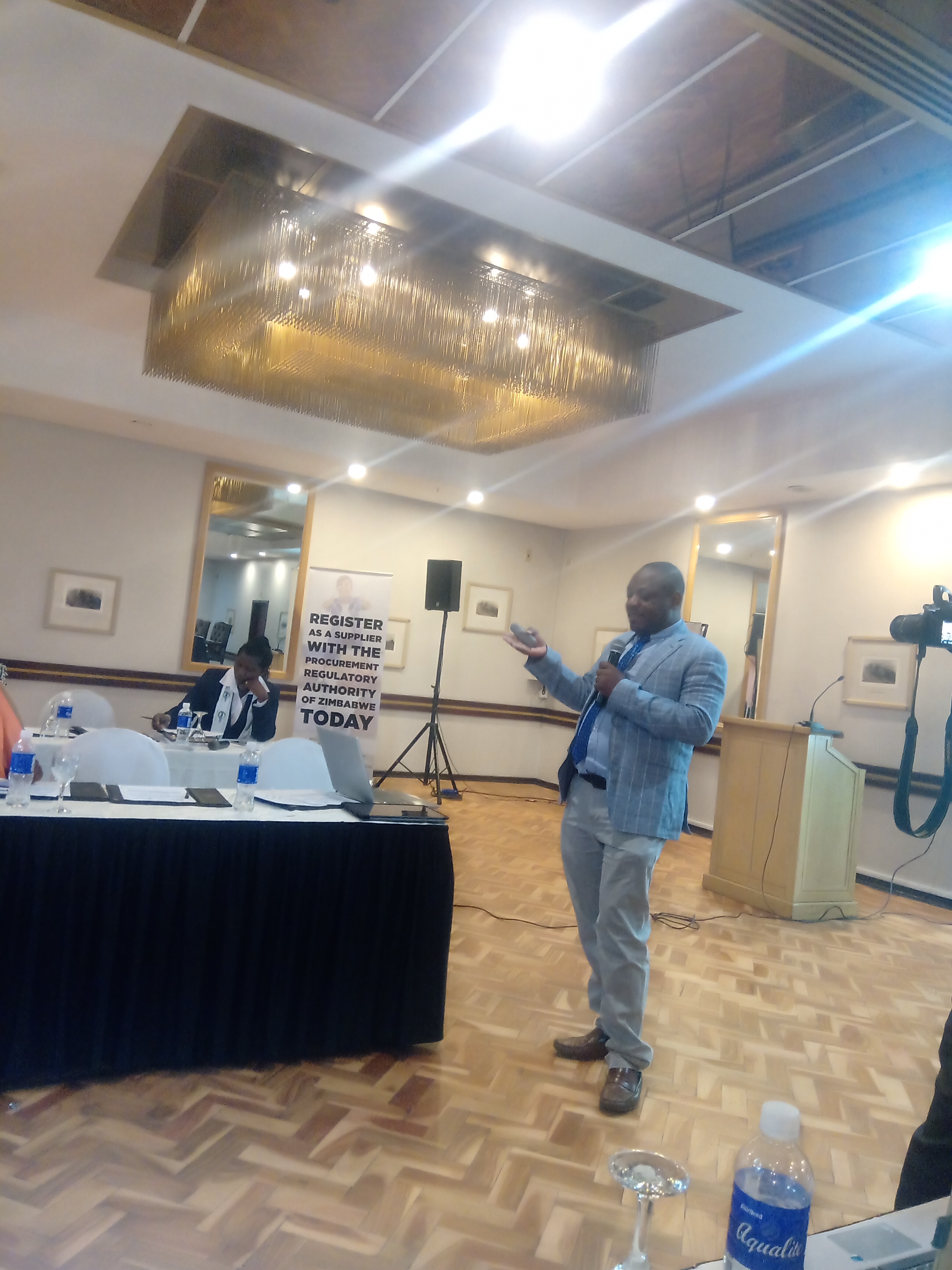Dr. Tawanda Zinyama, a Lecturer of Public Administration at the University of Zimbabwe has said upholding fiscal transparency is a critical ingredient for economic growth.
Dr. Zinyama revealed this at a workshop jointly organised by the Procurement Regulatory Authority of Zimbabwe (PRAZ) in partnership with Transparency International Zimbabwe (TIZ) held for the Parliamentary Portfolio Committee on Budget, Finance and Economic Development to acquaint members on procurement regulations in Harare today.
He said public resource management covers strategic planning and resource management.
“Fiscal transparency is production of information on resource management. This is a critical element that ensures market confidence is gained and expected goods and services are delivered to intended beneficiaries.
“Transparency should be seen from strategic planning level: What is the vision and what and how will the goods and services be delivered. Between 20% and 25% of resources go to procurement in national budgets,” Dr. Zinyama said.
He said programme-based budgeting by Treasury is allocating for specific activities but the process is not transparent.
“More often that not citizens wake up to see a borehole in their area without consultation. Zimbabwe has a sound, effective public management system but procurement is opaque hence it becomes a breeding place for corruption. There is need to address the challenges of insider trading.”
Speaking at the same meeting, Temba Mliswa, the Member of National Assembly for Norton said corruption in public procurement is shocking.
“The annual Auditor General’s reports say over $3 billion was lost in public procurement. Agenda 2030 speaks on food security yet $3 billion is lost to procurement. How do we justify awarding of tenders to convicted fraudsters like Wicknell Chivayo of Intratek yet the law is clear that a person with a criminal record is not allowed to be a director of any company?” Mliswa quipped.
The energy crisis in SADC, Zimbabwe included is deepening yet many contracts were awarded to independent energy producers through corrupt means but at a huge cost for the country.
Members noted that there is lack of enforcement of even the Constitution and structures.
With existing structures on procurement and good corporate governance, Vision 2030 can be realised if implementation is taken on board.
Mr. Nyasha Chizu, the PRAZ Chief Executive Officer said government has been losing public funds through inefficient and ineffective procurement processes, which have often resulted in the acquisition of substandard goods.
“There is need to redeem the state tender procedures, which have in more cases have been dogged by controversy. Procurement is a technical activity that should be treated with the same level of respect like other professionals, hence requires experts to manage the process,” Mr. Chizu said
Following the implementation of a new public procurement framework, the Government of Zimbabwe has since established the Procurement Regulatory Authority of Zimbabwe (PRAZ), the Special Procurement Oversight Committee (SPOC), and independent review panels.
These institutions will ensure effective monitoring, evaluation and professionalisation of the decentralised procurement, which is now taking place in the Procurement Management Units (PMUs) within the individual procuring entities (PEs).
“PRAZ is no longer involved in the adjudication and awarding of tenders like before. The award of tenders will now be done by accounting officers in various State departments and companies, with the authority only playing a supervisory and monitoring role to ensure Government entities comply with the new Act and other set standards.
“Procurement practitioners shall be regulated and made to abide by code of conduct, failure which will result in cancellation of practicing license,” Mr. Chizu added.
